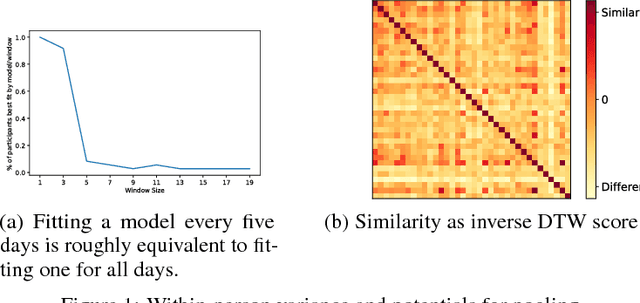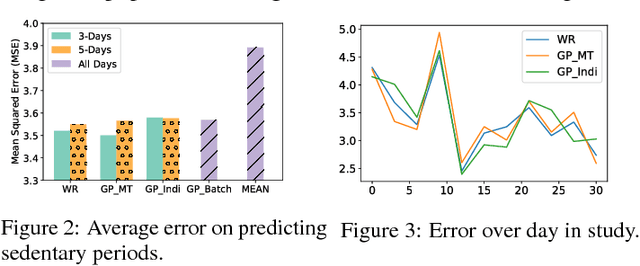Personalizing Intervention Probabilities By Pooling
Paper and Code
Dec 02, 2018

In many mobile health interventions, treatments should only be delivered in a particular context, for example when a user is currently stressed, walking or sedentary. Even in an optimal context, concerns about user burden can restrict which treatments are sent. To diffuse the treatment delivery over times when a user is in a desired context, it is critical to predict the future number of times the context will occur. The focus of this paper is on whether personalization can improve predictions in these settings. Though the variance between individuals' behavioral patterns suggest that personalization should be useful, the amount of individual-level data limits its capabilities. Thus, we investigate several methods which pool data across users to overcome these deficiencies and find that pooling lowers the overall error rate relative to both personalized and batch approaches.
 Add to Chrome
Add to Chrome Add to Firefox
Add to Firefox Add to Edge
Add to Edge